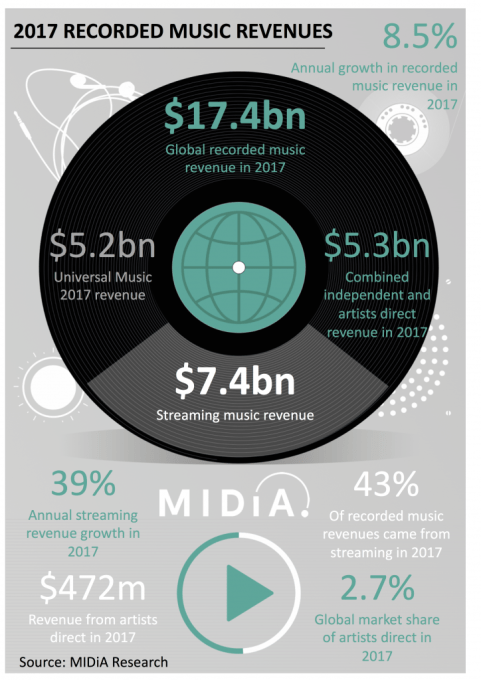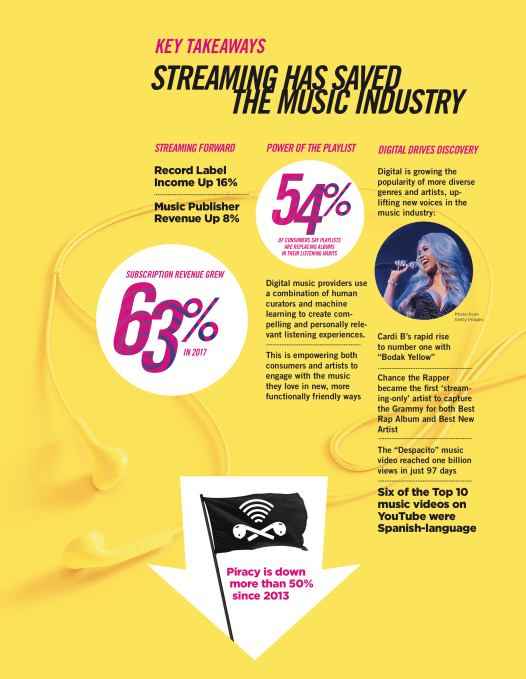How have streaming services affected the music industry? A new report claims only for the better.
Sarah Perez at Tech Crunch argues that streaming services have saved the music industry, as revenues from digital downloads and physical albums have fallen by $783 million in the past year. But is that the right way to look at it? Couldn’t streaming be the reason that the sales by traditional mediums are decreasing?

In 2017, total streaming revenues were $7.4 billion, or 43 percent of the $17.4 billion global music revenues.
Streaming music subscriptions have increased 63% from 2016 to 2017. The United States currently has the most streaming music subscribers, accounting for 40% of total streaming revenues. This is only going to increase; experts predict that subscribers will reach 90.1 million by 2025.

Interestingly, although streaming has increased dramatically, there is also a fad among millennials to revert back to owning physical copies of their music. One only has to look at the popularity of vinyl among hipsters or the cassette tape nostalgia among 90s kids, which retailers like Urban Outfitters are taking full advantage of.
Whatever your opinion on streaming, we can agree that there are two good things that streaming has done for the industry: decreased piracy and given more exposure to diverse artists and genres, especially those without labels. Piracy has decreased by 50% since 2013, while artists without labels saw growth of 27.2% in 2017.
As streaming continues to grow, will consumers stop buying their own music entirely? It seems unlikely; although streaming gives instant access millions of songs, people are still buying their own music. Streaming has simply enabled the discovery of many new artists that may never have been able to get a record deal, and for that, music junkies are grateful.


